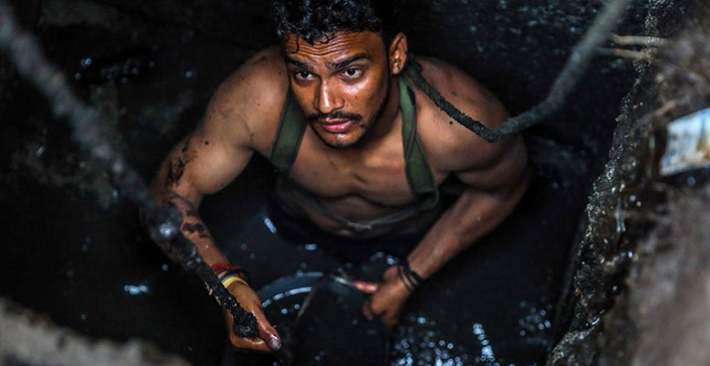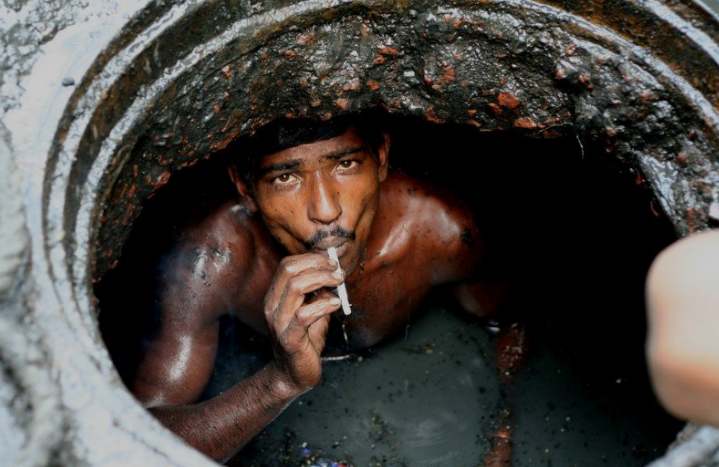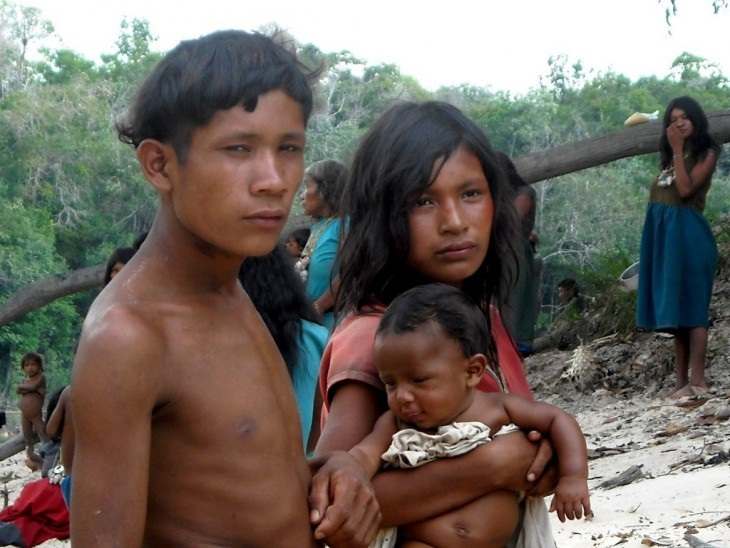Because of this work, thousands more people die in India in an entire year than the number of soldiers martyred in the army. And such work is done only by the so-called untouchable people, which was imposed on them by the ancient social caste system of India. This work is like cleaning dirty sewerage, picking up people’s feces, in which suffocation is common.
If seen, this is technically illegal because according to the Indian Constitution the law does not allow it. But it is continuously and openly going on somewhere around you, either by local bodies or privately.

This is very unsafe work because every day such communities are doing such dirty work. When a man leaves his house in the morning to go to work, he does not know when he will be able to see his family again because the chance of serious accident and illness in this work is 100%.
As expected, only the poorest of the poor, the so-called untouchables in India agree to such work due to social constraints due to lack of economic options in their lives. Because it is not only dirty, but also deadly.
The entire purpose of the job is to get into the sewer and remove any stones, debris or anything else that may be obstructing the flow of water. So sanitation workers work chest-deep in stinking mud, usually wearing only shorts and T-shirts. However most individuals work without T-shirts, which is unfortunate as clothing is expensive. The local administration has rules to provide them security but who cares?
You can imagine that the smell of poisonous gas can be so strong that no ordinary person can even stand near it and people passing near the road are not able to even see this gruesome act. Still these people are getting into this mess. There is a great danger that due to poisonous gas, a person may suffocate or become unconscious and drown in the garbage pit.
Men often go down and find sticks or other sharp objects at the bottom. Fractures or wounds caused by such contaminated water commonly result in illness or even amputation. Sewers are also home to scorpions and centipedes. All of these are dangerous for bare skin.

80% of sweepers die before the age of 60 due to poison or non-healing wounds. Despite the Swachh Bharat Abhiyan, the government also tries to help reluctantly. There are more than 5,000 manholes in the capital Delhi alone during the rains, and they often get clogged, preventing water from flowing out of homes.

Of course, people who pretend to be upper class, who do not even want to sit near these people, turn to the so-called untouchables to clean up the mess. Luckily, they can be easily found walking on the streets and provide services at affordable prices.
Furthermore, sewerage use is not widespread among Indians. Indians are indiscriminate in this matter, they flush plastic bags, large diapers and even glass down the toilet.
It also has psychological effects. The smell which is difficult for a common man, has become normal for this community. Most of the people who clean sewers get used to the smell. Because perhaps the smell has settled in their hair and skin. Yet many cleaners have come to hate the dark black and yellow colors.
When I asked, a woman told that she does not even like yellow colored lentils and when a big man calls her for such cleaning, she even goes out of the house to give water to him in separate dirty bottles while he cleans her own filth. I am doing it but I have to do it for the money.

Now you tell me how difficult would be that work which the common Indian would stay away from seeing. The quality of life in this work is zero in which death is given by giving the illusion of living by the society. If you ever see cleaning of dirty drains, safety tanks or sewerage, you will understand why it is a more difficult job than the Army.

About the Author
Manish love to write and he is a Civil Servant. Users can follow Manish on Instagram ![]()
The United States needs families, even if they are illegal immigrants but married to American
Politics is going on about citizenship not only in India but all over the world….
Why Cost of Living and Housing killed Europe’s fertility rate?
Europe is witnessing a sharp decline in fertility rates, reaching 1.08 children per woman in…
Remind the Lata Mangeshkar : Biography, Facts and Stories
Lata Mangeshkar is a legendary Indian singer and music composer who has recorded thousands of…
Piraha tribe : The Tribe who do not sleep
The Piraha tribe, with barely 400members,s dwells in the forests of the Amazon. These people…
How India reached at 75 years after independence
It has been 75 years since India’s independence, and in the 75 years after this…
How Iran looked like before Iranian Revolution 1979, [Pics]
Whenever Westerners hear the term “Iran,” images of veiled women, burning American flags, and enraged…






